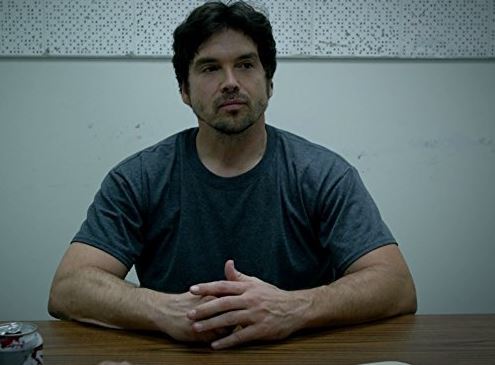
Bosch is a predictably “gritty” crime show; it doesn’t exactly need a monologue with forensic scientists lamenting the world they live in to make that abundantly clear. Oddly, Bosch seems fully comfortable embodying these common mystery and noir tropes, relying on performance early on to disguise an otherwise rudimentary set of character and world-building tools. And despite that overwhelming sense of deja vu that comes from the opening chapters of Bosch‘s freshman season, the formula is working in the first two episodes, which escape the weight of its well-worn stories and slow (and I mean, slooow) burn formula through measured direction and dedicated performances, pointing towards a promising show that might manifest, once Bosch is done going through the motions of establishing its world and players.
What is working early on is the balance of procedural and serialization, how “Lost Light” bleeds the plight of Harry Bosch into the investigations of the bones found on the hill and the discovery of Raynard Waits and his trunk full of evidence. These moments are when Bosch reveals the potential to be something more engaging and resonant than the typical Law and Order show it draws its format from; when Bosch gets personal with its titular character, it allows Titus Welliver to add layer after layer to his performance, highlighting any scene that features him in it (and since the show is named after him, this is many of them).
His performance really carries a lot of “Lost Light,” an hour that is focused squarely on lining up all the dominoes of season one in a neat line. It’s expected a show like this would withhold information; but the pace of “Lost Light,” like the pilot, is kind of off, with the serial killer story line and Bosch’s trial pushing forward in inconsistent ebbs and flows, pausing at times for a romantic aside with Brasher (the episode’s true highlight is their scene outside the police department, where Bosch realizes his inability to keep secrets down is going to screw him over again), then rushing through other, more impactful (at least in terms of plot) scene of Bosch on the stand at his own trial.
That slight imbalance is almost enough to turn “Lost Light” into a lost cause; however, propelled by the titular metaphor, Bosch and Waits’ characters are enough to keep things afloat while Bosch goes through the process of exposition and first act set-up. Waits sudden turn towards manipulative and terrifying really gives the episode a wonderful, subtle little twist, pushing the two seemingly unrelated cases together almost immediately – something that may be a red herring, but at least represents an increase in narrative momentum in the near future.
That push forward is really something Bosch needs; while it’s been entertaining to slowly breathe in Bosch and his Los Angeles for two hours, “Lost Light” proves that things need to pick up the pace, or risk becoming a slog of circular characterizations and misleads. And although the show’s pacing certainly needs to ingest a little caffeine, how Bosch‘s writers are carefully casting light on each piece of its puzzle suggests a confident approach to the central stories and character – like the background of Bosch’s apartment, which came from Paramount Pictures, who made a terrible movie “loosely” based on a case of his. It’s certainly not operating on all cylinders yet, but there’s a distinct sense at the end of “Lost Light” that all this texture and quiet observation is going somewhere – and that’s enough to keep what’s happening in these first two hours compelling and mysterious, at least in the short-term.
[Photo via Amazon]





